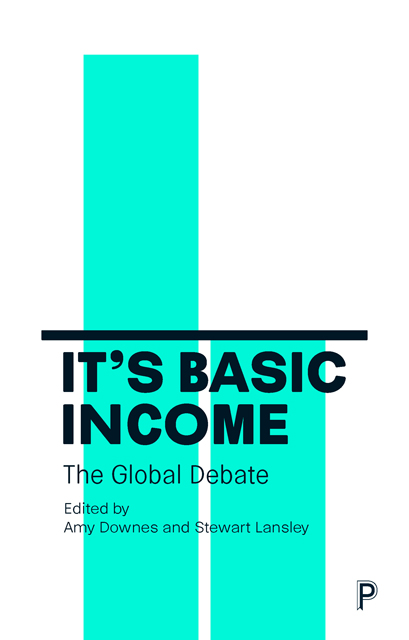33 - The post social democratic pathway for the 21st century: the Dutch example
Published online by Cambridge University Press: 11 April 2023
Summary
‘The rise of the precariat, and the decreased popularity of the two political parties that built the Dutch welfare state, is opening the way for a post social democratic era. Basic income has the strongest card.’
In Western Europe, the 20th century was the century of social democracy; a model where paid work was the central focus, full (male) employment was the norm, and social benefits were conditional. Today, the social democratic model of the welfare state is in deep crisis. It is no longer working, and no longer appealing to the voters. The power of European social democracy has been based on the strength of the union movement. The steady erosion of both the old model of work and of the power of unions over the last 40 years – membership of Dutch unions peaked in the late 1970s – has contributed to the decline of the social democratic movement, but also created opportunities for basic income as a model for a new social contract in the 21st century.
The Social Democratic Party (PvdA) reached an all-time low with 5.8% of the vote in the March 2017 national elections. The Christian Democratic Party (CDA), which also played a crucial role in the build-up of the Dutch welfare state, is also in structural decline. The popularity of the CDA in general elections has declined from an absolute majority in the 1950s to 12.4% in 2017. In the general elections in 2006, the Christian Democratic and Social Democratic parties together secured 46% of the vote. In March 2017, their combined share had fallen to 18%, and the election was won by Mark Rutte: Prime Minister since October 2010 and the leader of the right-of-centre People’s Party for Freedom and Democracy.
These profound political trends have been accompanied by powerful changes in the nature of work in the Netherlands. Today, a fifth of the Dutch workforce – 2 million people – have a flexible contract, while million are self-employed. The nation is witnessing an increase in the number of flexible jobs and a decline in security and the regularity of work. Similar trends have been occurring across the European continent. Because of these shifts, the size of the Dutch precariat has been estimated at 4 million (roughly 40% of the population), while the unions are trying to convince politicians to restore the old model of stable, regulated jobs through legislation.
- Type
- Chapter
- Information
- It's Basic IncomeThe Global Debate, pp. 176 - 180Publisher: Bristol University PressPrint publication year: 2018



